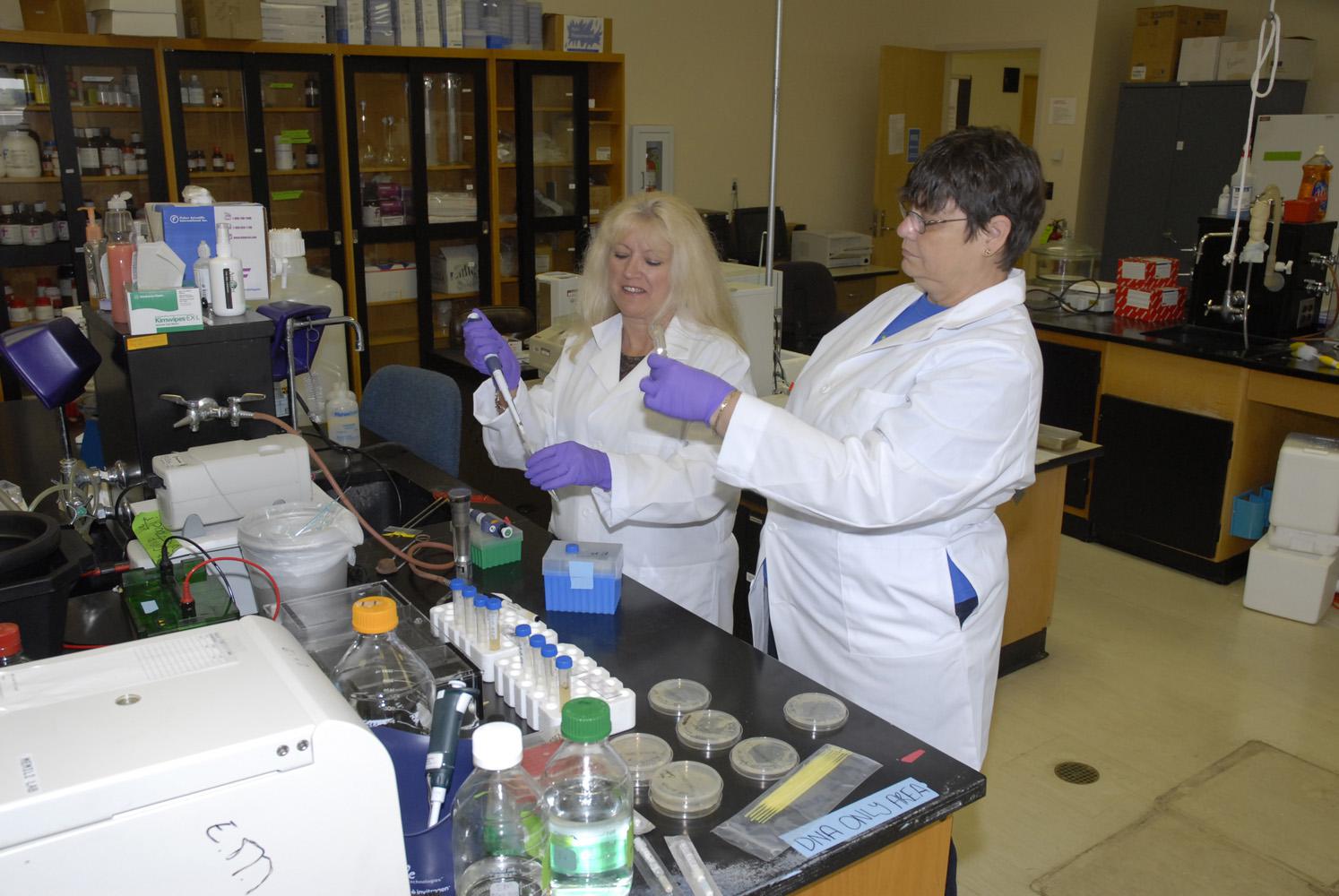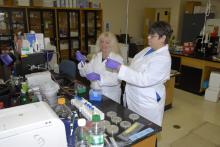Information Possibly Outdated
The information presented on this page was originally released on July 19, 2012. It may not be outdated, but please search our site for more current information. If you plan to quote or reference this information in a publication, please check with the Extension specialist or author before proceeding.
MSU, science teachers develop genomic lessons
MISSISSIPPI STATE – Two middle-school science teachers returned to college this summer for lessons in functional genomics and biology that did not exist their first time around, and they educated their professor at the same time.
Dr. Erdogan Memili, an associate professor of animal and dairy science at Mississippi State University, received a Research Experience for Teachers grant from the National Science Foundation. RET allowed him to offer fellowships to veteran eighth-grade science teachers Joan Estapa of Bay Saint Louis and Judy Harden of Saltillo. The teachers jumped at the chance to conduct research in a university lab, to develop lessons for classroom use and to give a professor insight into middle school science curriculum.
“We want to take our required framework and use lessons learned in a university setting to teach middle school students,” said Estapa, who works at Bay Waveland Middle School in Hancock County. “We want to be able to adapt the lessons for different learning styles, educational levels and special-needs students.”
Estapa said college professors need to understand the challenges teachers face in secondary education. In anticipation of the project, she created a binder for Memili to show him some of the standards she must meet with her students. The notebook included the middle school science benchmarks and the reading and writing readiness requirements.
Estapa wants to create “professional learning communities” by bringing science and health teachers together with common goals to teach “real world” genetics.
“Students often ask why they need to learn genetics or cell biology. We can use some of the lessons we’ve learned at MSU to illustrate how this knowledge improves our world, such as selective breeding to produce better beef cattle,” she said.
Memili, a researcher with the Mississippi Agricultural and Forestry Experiment Station, said functional genomics refers to the study of gene products such as proteins and ribonucleic acids. Gene products are important because they provide vital information about disease, development and the effects of environment on organisms. The teachers learned functional genomics and digital biology, genetics and cell structure, but he spent almost as much time listening as he did teaching.
“These teachers are keenly aware of how much students love learning through hands-on experiences. They also know students’ attention spans are short, so lessons need to be in about 15-minute segments,” he said.
For one project, the teachers collected bacteria samples, isolated a single colony, and isolated and analyzed DNA from the pure bacteria. Repeating the experiment in the classroom can help them teach students about hygiene, antibiotics, genes and gene products.
“Eighth graders love seeing what grows on a typical doorknob,” he said. “By growing microbes from a common surface, students learn the importance of washing their hands.”
Memili said they also can learn about beneficial bacteria and how identifying the type of bacteria helps in prescribing antibiotics.
“These lessons bring real-life experiences into the classroom,” said Harden, who teaches at Tupelo Middle School. “We are getting more background in genetics than teachers would typically have. We will build lesson plans, including a genetics unit, that will correlate to science objectives we are required to teach.”
To wrap up their summer work, the teachers will develop a one-hour presentation demonstrating activities that go with their new lessons plans. They will make presentations at conferences held by the Mississippi Science Teachers Association and the National Science Teachers Association. They also will publish information they learned from the project.



